Our fellowship program is dedicated to advancing the art and science of medicine through a rich and diverse educational experience at top-flight academic medical centers. The program is a collaborative effort with the University of Washington (UWMC), Fred Hutchinson Cancer Center (Fred Hutch), Harborview Medical Center (HMC) and VA Puget Sound Health Care System (VAPSHCS). Additional clinical and didactic activities occur at the Washington Center for Bleeding Disorders (WACBD) and Bloodworks Northwest (BWNW).
Trainees work with diverse patient populations in general, multi-disciplinary and disease-focused clinical settings across many sites that result in an unparalleled experience. Not only do our fellows spend time immersed in the tertiary and research-based care that occurs at UWMC, Fred Hutch and WACBC, they also work with diverse populations, including veterans at VAPSHCS and underserved and marginalized patients at HMC. Enhanced experiences in transfusion medicine, cellular therapy, hemostasis/thrombosis and bone marrow failure are available for fellows pursuing expertise in classical hematology.
Our interdisciplinary research program focuses on basic, translational, clinical and outcomes research in hematology and cancer biology as well as therapeutic interventions.
Clinical Focus

Our program is committed to the conduct of clinical research to identify new approaches to treat patients with malignant diseases and non-malignant hematologic disorders. Clinical research investigations are ongoing in areas of blood and marrow transplantation, immunotherapy, personalized medicine, targeted therapies of malignant diseases, congenital and acquired hematologic disorders, cancer epidemiology, outcomes research, quality of life, survivorship and palliative care. New agents in cancer treatment are investigated through investigator-initiated clinical trials, industry-sponsored trials, institutional protocols and international and national consortia trials.
The University of Washington and Fred Hutch-based faculty are national leaders in developing novel approaches to the diagnosis and treatment of disorders across broad areas of hematology and oncology. The University of Washington and Fred Hutch serve as a lead and statistical center for the Southwest Oncology Group (SWOG) and Fred Hutch is an active participant in the Blood and Marrow Transplant Clinical Trials Network (BMT-CTN).
Fred Hutchinson Cancer Center Clinical Trials
University of Washington-based faculty who have clinics at Fred Hutch are active participants in Fred Hutch and Southwest Oncology Group (SWOG) protocols in leukemia, lymphoma, lung, breast, GU, brain tumors, and melanoma. Clinical trials are underway using multi-modality therapies for breast cancer, high dose therapy for non-Hodgkin’s lymphoma and myeloma with marrow-ablative or non-marrow-ablative approaches for allogeneic transplantation. Clinical research programs are developing and studying immune-effector cells, therapeutic antibodies and small molecule targeted and immunotherapeutic agents across a broad range of hematologic malignancies and solid tumors. As the largest sarcoma, melanoma and renal cell cancer programs in the Pacific Northwest, clinical investigation of immunotherapies and novel agents is particularly active in these areas.
The Pacific Northwest Prostate Cancer Specialized Program of Research Excellence (SPORE) is one of eight Prostate Cancer SPOREs in the nation. The Fred Hutch Lung SPORE focuses on lung cancer early detection and screening and development of effective therapies for small cell and non-small cell lung cancer. Program project grants (P01) support extensive research activities in acute leukemias, BMT and Merkel cell carcinoma. These efforts are supported by Integrated Research Centers at Fred Hutch in Immunotherapy, Pathogen-Associated Malignancies and Translational Data Science.
Continued expansion of the clinical research protocols is anticipated as programs are integrated into Fred Hutch. Find more information about clinical trials at Fred Hutch.
Training Sites
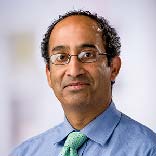
Manoj Menon, M.D., M.P.H.
Section Head, Hematology, Harborview Medical Center
Associate Member, Vaccine and Infectious Disease Division, Fred Hutch
Associate Member, Clinical Research Division, Fred Hutch
Associate Professor, Division of Hematology, Department of Medicine, UW School of Medicine
Harborview Medical Center (HMC) is a 413-bed county hospital that serves as the Level I trauma center for a several state area and also provides primary care to indigent patients and patients with HIV-related illnesses. The fellow sees hematology and oncology patients as a consultant on the inpatient ward services and in clinic. There is no inpatient hematology/oncology service, so patients are admitted to a general medical service where the team acts as consultants. There are usually 0-5 new consults per day, and the team generally follows approximately 10 patients. Patients seen on the consult service may also be seen in follow up in the Hematology/Oncology Clinic.
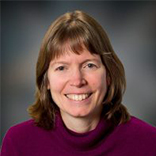
Theresa Nester
Bloodworks Northwest provides instruction in the theory and practical application of transfusion medicine, immunohematology and hemostasis/thrombosis toward developing consultative and primary management skills in these subdisciplines of hematology. Located in Seattle, the BWNW is the central transfusion service for all of King County (the densest county in the state of Washington). The BWNW labs provide reference services for testing and provide blood collection and distribution services, including apheresis procedures and transfusion consultation.
Training is provided in donor collection and blood processing, crossmatch and antibody identification, HLA and platelet immunology, donor testing and coagulation. Fellows have the opportunity to provide consultations to referring physicians, particularly in cases involving the management of bleeding, transfusion reactions and antibody-related clinical issues. On Wednesday afternoons fellows attend a BWNW hemophilia clinic.
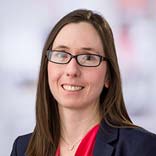
Rachel Yung, M.D.
Associate Professor, Division of Medical Oncology, University of Washington
Associate Member, Clinical Research Division, Fred Hutch
Fellows see a wide variety of oncology patients at Fred Hutch. Fellows attend multidisciplinary clinics in breast cancer and melanoma tumor clinics where patients are evaluated in conjunction with medical radiation and surgical oncologists. Fellows also participate in general medical oncology clinics where patients are evaluated for a variety of malignancies including GI, GU, lung, gynecologic, and hematologic malignancies.
Under the guidance of an attending physician, the fellow may evaluate from two to four new patients per day, order appropriate staging and diagnostic studies, perform bone marrow biopsies and aspirates, and formulate a plan of treatment based on history, physical, and test results. The fellow will evaluate patients for eligibility on clinical research protocols. Fellows will provide an explanation of the study and alternative treatment, enrollment criteria, and coordination of the treatment program. Cases requiring interdisciplinary management may be seen in one of several specialty clinics.
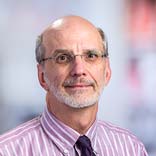
Michael Linenberger, M.D., F.A.C.P.
Medical Director, Apheresis and Cellular Therapy, Fred Hutch
Associate Member, Clinical Research Division, Fred Hutch
Professor, Division of Hematology, Department of Medicine, UWSOM
Fellows learn about the presentation, pathophysiology, clinical manifestations, diagnostic approaches and treatment of a wide variety of benign and malignant hematologic disorders. Fellows attend multidisciplinary clinics in hematology and hematologic malignancies. Fellows participate in a variety of ambulatory care clinics, including lymphoma, MDS, myeloma and hematology.
This rotation also provides an opportunity to observe in the Apheresis Unit and Cellular Therapy Lab to gain an understanding of the technical and clinical aspects of peripheral blood stem cell mobilization and collection, processing and cryopreservation. Fellows also participate in consultations for patients who may be candidates for blood and marrow transplantation (BMT), as well as see long-term BMT follow-up patients.
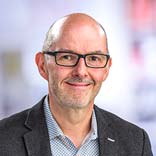
Marco Mielcarek, M.D., Ph.D.
Medical Director, Adult Blood and Marrow Transplant Program, Fred Hutch
Associate Member, Clinical Research Division, Fred Hutch
Associate Professor, Division of Medical Oncology, Department of Medicine, UWSOM
The BMT ambulatory care rotation pairs fellows with foremost experts in the BMT field. The goal of this rotation is to learn the theory, indications, treatment approaches, complications and outcomes of autologous and allogeneic bone and marrow transplantation and to develop confidence and clinical expertise in the care and management of transplant recipients. BMT patients are followed pre- and post-transplant for a period of approximately 100 days, after which they are referred back to their referring physician. Fellows see patients admitted for stem cell infusion in preparation for non-myeloablative transplants and unrelated “mini” transplants.
Fellows have the opportunity to conduct a patient care conference of his/her choosing:
- arrival (a summary of the major issues to be addressed during pre-transplant evaluation);
- data review (a summary of the pre-transplant evaluation results and upcoming transplant treatment plans, goals, risks and potential adverse events); or
- discharge (a summary of post-transplant events and recommendations for further therapy after discharge from the BMT service).
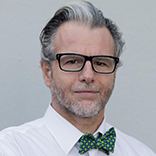
Paul Hendrie, M.D., Ph.D.
Clinical Associate Professor, Division of Hematology, Department of Medicine, UWSOM
Associate Medical Director, Inpatient Hematology/Oncology Service, Fred Hutch
The fellow works as an active consultant on this inpatient rotation and works directly with the residents, nursing staff, pharmacists, social workers, and the attending physician to assure appropriate workup and care of patients. The fellow supervises the resident who is responsible for primary medical management. The inpatient unit includes patients with new diagnoses of leukemia, lymphoma, aplastic anemia, sickle cell disease, and many solid tumor cancers including renal cell, colorectal, breast and melanoma. The UWMC is a referral center for the five WWAMI states (Washington, Wyoming, Alaska, Montana, Idaho) as well as a local primary care site.
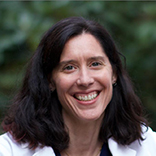
Sioban B. Keel, M.D.
Associate Professor, Division of Hematology, Department of Medicine, UWSOM
This rotation provides the opportunity to learn about the work-up, laboratory assessment and treatment of a wide variety of hematologic consultative issues. The focus is benign hematology. Hematology consults often involve evaluation of adenopathy, splenomegaly, and cytopenias, and the management of complex bleeding abnormalities or thrombotic complications, especially in surgical and obstetrical settings.
The UWMC is a referral center for the five WWAMI states (Washington, Wyoming, Alaska, Montana, Idaho), and thus, is an active site for both basic medical care and for tertiary referral issues, such as liver transplantation, complex surgery, and high-risk obstetrics. The use of flow cytometry and immunocytochemistry methods are important focuses of this rotation.

Marco Mielcarek, M.D., Ph.D.
Medical Director, Adult Blood and Marrow Transplant Program, Fred Hutch
Associate Member, Clinical Research Division, Fred Hutch
Associate Professor, Division of Medical Oncology, Department of Medicine, UWSOM
The BMT inpatient rotation at UWMC pairs fellows with foremost experts in the BMT field. The goal of this rotation is to learn the theory, indications, treatment approaches, complications and outcomes of autologous and allogeneic stem cell transplantation and to develop confidence and clinical expertise in the care and management of transplant recipients. Fellows provide primary care of patients with the assistance of the attending physician, nursing, pharmacy, social services, transition team, and the outpatient clinic providers. The fellow is responsible for the intake, daily management, diagnostic and therapeutic decision-making, documentation (paper and electronic), and coordination of discharges. Supportive care includes platelet and granulocyte transfusions, reverse-isolation techniques, Hickman catheters, nutrition research, plasma exchanges, ex vivo immunoabsorption, infection prevention and treatment in granulocytopenic and immunosuppressed patients. Basic principles of intensive chemoradiotherapy are emphasized.
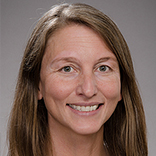
Monica Pagano, M.D.
Medical Director, Transfusion Services
Division Head, Transfusion Medicine
Associate Professor, Department of Laboratory Medicine and Pathology
Adjunct Associate Professor, Division of Hematology, Department of Medicine
Transfusion medicine training includes instruction in the theory and practical application of transfusion medicine, immunohematology, cellular therapies and therapeutic management of bleeding disorders. The focus is on developing consultative and primary skills in these systems-based subdisciplines of hematology. Training sites include the Transfusion Services at UWMC and Fred Hutch with additional experiences at BWNW and WACBD. Fellows are exposed to testing, procurement and selection of blood products, including crossmatch and antibody identification, HLA and platelet immunology. Additional experiences include therapeutic and donor apheresis, transfusion consultations, case management in support of the bleeding patient, transfusion reactions and antibody-related clinical issues.
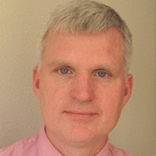
Robert Richard, M.D., Ph.D.
Director, Hematology, VA Puget Sound Health Care System
Associate Professor, Division of Hematology, Department of Medicine, UWSOM
Fellows develop effective consultation skills and enhance medical knowledge by seeing a wide variety of benign and malignant hematologic disorders. The Hematology Service receives on average 8 to 10 consults per week, primarily from the inpatient VAPS services but also from VA facilities throughout the state and Alaska. Most of the outside consult requests can be handled as electronic non-visit consults. The Hematology Consult Service fellow sees all inpatient consults and reviews electronic outpatient consults to determine acuity of the question, respond to the consult, and review their response with the attending physician. The problems encountered as electronic consults are primarily benign hematologic issues such as anemia, cytopenias, and thrombo-embolic disorders.

Research Focus
Primary laboratory research focuses are:
- Transplantation biology
- Immunology, tumor immune microenvironment and cell-based immunotherapies including adoptive immunotherapy
- Genetic engineering and gene therapy
- Solid tumor biology
- Experimental chemotherapy, small molecules, targeted agents and mechanisms of drug resistance
- The nature and control of normal and malignant hematopoiesis
Ongoing basic research focuses are:
- Developmental aspects of hematopoiesis, including hematopoietic stem cell expansion, immune reconstitution following hematopoietic stem cell transplant and molecular analyses of normal and malignant hematopoiesis
- Molecular analyses of congenital and acquired bone marrow failure syndromesDevelopmental immunology and adoptive immunologic approaches to cancer therapy
- Developmental immunology and adoptive immunologic approaches to cancer therapy
- Neuro-oncology and solid tumor research including growth and differentiation of normal and malignant tissues and mechanisms of chemoresistance
- Additional interdisciplinary research involving nanotechnology and molecular imaging for neurologic disease and solid tumor diagnosis, treatment, and response evaluation
- Tumor microenvironment and mechanisms for therapeutic approaches
Research Mentors are Available at all Our Affiliated Institutions:

Seattle Children's Research Institute
Seattle Children's Research Institute
Seattle Children’s Research Institute scientists work in interdisciplinary groups around common thematic focus areas and identifiable sets of core programs. Dr. Michael Jensen leads the SCRI Cancer Research Program with current focus in use of immunotherapeutic approaches to treat cancer.
Learn More
Veteran's Affairs Puget Sound Health Care System
Veteran's Affairs Puget Sound Health Care System
Research and Development plays a vital role in the Department of Veterans Affairs mission, and nowhere is this more evident than in the VA Puget Sound Health Care System. The R&D program is a reflection of VA Puget Sound’s commitment to providing the highest quality care to its Veterans.
Learn MoreContact Us
Paul Ford
Hematology-Oncology Fellowship Program
University of Washington/Fred Hutchinson Cancer Center
1100 Fairview Ave N – M1-B208
Seattle, WA 98109-1024